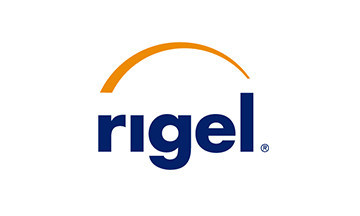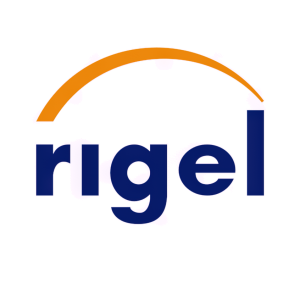National Comprehensive Cancer Network® Adds Newly Approved REZLIDHIA™ (olutasidenib) to Clinical Practice Guidelines in Oncology for Acute Myeloid Leukemia
Rigel Pharmaceuticals (Nasdaq: RIGL) announced that REZLIDHIA (olutasidenib) has been included in the NCCN Clinical Practice Guidelines for acute myeloid leukemia (AML) as a recommended therapy for adult patients with relapsed/refractory AML carrying an IDH1 mutation. This recognition comes shortly after the FDA approved REZLIDHIA for adults with R/R AML in December 2022. The NCCN Guidelines are widely regarded as the standard for cancer care. CEO Raul Rodriguez expressed satisfaction with this prompt inclusion, underscoring the strength of REZLIDHIA's safety and efficacy data.
- REZLIDHIA included in NCCN Clinical Practice Guidelines for AML, enhancing its credibility.
- FDA approval for REZLIDHIA in December 2022 for treatment of adult patients with R/R AML.
- Differentiation syndrome reported in 16% of patients; 1% fatality rate.
- Hepatotoxicity occurred in 23% of treated patients during clinical trials.
Insights
Analyzing...
"We are pleased that REZLIDHIA was quickly added to the NCCN Guidelines® for AML, receiving important recognition as an appropriate treatment option for adult R/R AML patients with an IDH1 mutation," said
In
The NCCN is a not-for-profit alliance of 32 leading
NCCN® and the NCCN Guidelines® are registered trademarks of National Comprehensive Cancer Network.
About AML
Acute myeloid leukemia (AML) is a rapidly progressing cancer of the blood and bone marrow that affects myeloid cells, which normally develop into various types of mature blood cells. AML occurs primarily in adults and accounts for about 1 percent of all adult cancers. The
Relapsed AML affects about half of all patients who, following treatment and remission, experience a return of leukemia cells in the bone marrow.2 Refractory AML, which affects between 10 and 40 percent of newly diagnosed patients, occurs when a patient fails to achieve remission even after intensive treatment.3 Quality of life declines for patients with each successive line of treatment for AML, and well-tolerated treatments in relapsed or refractory disease remain an unmet need.
About REZLIDHIA™
INDICATION
REZLIDHIA is indicated for the treatment of adult patients with relapsed or refractory acute myeloid leukemia (AML) with a susceptible isocitrate dehydrogenase-1 (IDH1) mutation as detected by an FDA-approved test.
IMPORTANT SAFETY INFORMATION
WARNING: DIFFERENTIATION SYNDROME Differentiation syndrome, which can be fatal, can occur with REZLIDHIA treatment. Symptoms may include dyspnea, pulmonary infiltrates/pleuropericardial effusion, kidney injury, hypotension, fever, and weight gain. If differentiation syndrome is suspected, withhold REZLIDHIA and initiate treatment with corticosteroids and hemodynamic monitoring until symptom resolution. |
WARNINGS AND PRECAUTIONS
Differentiation Syndrome
REZLIDHIA can cause differentiation syndrome. In the clinical trial of REZLIDHIA in patients with relapsed or refractory AML, differentiation syndrome occurred in
If differentiation syndrome is suspected, temporarily withhold REZLIDHIA and initiate systemic corticosteroids (e.g., dexamethasone 10 mg IV every 12 hours) for a minimum of 3 days and until resolution of signs and symptoms. If concomitant leukocytosis is observed, initiate treatment with hydroxyurea, as clinically indicated. Taper corticosteroids and hydroxyurea after resolution of symptoms. Differentiation syndrome may recur with premature discontinuation of corticosteroids and/or hydroxyurea treatment. Institute supportive measures and hemodynamic monitoring until improvement; withhold dose of REZLIDHIA and consider dose reduction based on recurrence.
Hepatotoxicity
REZLIDHIA can cause hepatotoxicity, presenting as increased alanine aminotransferase (ALT), increased aspartate aminotransferase (AST), increased blood alkaline phosphatase, and/or elevated bilirubin. Of 153 patients with relapsed or refractory AML who received REZLIDHIA, hepatotoxicity occurred in
Monitor patients frequently for clinical symptoms of hepatic dysfunction such as fatigue, anorexia, right upper abdominal discomfort, dark urine, or jaundice. Obtain baseline liver function tests prior to initiation of REZLIDHIA, at least once weekly for the first two months, once every other week for the third month, once in the fourth month, and once every other month for the duration of therapy. If hepatic dysfunction occurs, withhold, reduce, or permanently discontinue REZLIDHIA based on recurrence/severity.
ADVERSE REACTIONS
The most common (≥
DRUG INTERACTIONS
- Avoid concomitant use of REZLIDHIA with strong or moderate CYP3A inducers.
- Avoid concomitant use of REZLIDHIA with sensitive CYP3A substrates unless otherwise instructed in the substrates prescribing information. If concomitant use is unavoidable, monitor patients for loss of therapeutic effect of these drugs.
LACTATION
Advise women not to breastfeed during treatment with REZLIDHIA and for 2 weeks after the last dose.
GERIATRIC USE
No overall differences in effectiveness were observed between patients 65 years and older and younger patients. Compared to patients younger than 65 years of age, an increase in incidence of hepatotoxicity and hypertension was observed in patients ≥65 years of age.
HEPATIC IMPAIRMENT
In patients with mild or moderate hepatic impairment, closely monitor for increased probability of differentiation syndrome.
Click here for Full Prescribing Information, including Boxed WARNING.
To report side effects of prescription drugs to the FDA, visit www.fda.gov/medwatch or call 1-800-FDA-1088 (800-332-1088).
REZLIDHIA is a trademark of
About Rigel
- The
American Cancer Society . Key Statistics for Acute Myeloid Leukemia (AML). RevisedJanuary 12, 2022 . AccessedAug. 1, 2022 at https://www.cancer.org/cancer/acute-myeloid-leukemia/about/key-statistics.html - Leukaemia Care. (2019). Relapse in Acute Myeloid Leukaemia (AML). Version 3. Reviewed
October 2021 . AccessedDec 2, 2021 at https://media.leukaemiacare.org.uk/wp-content/uploads/Relapse-in-Acute-Myeloid-Leukaemia-AML-Web-Version.pdf - Thol F, Schlenk RF, Heuser M,
Ganser A. How I treat refractory and early relapsed acute myeloid leukemia. Blood. 2015 Jul 16;126(3):319-27. doi: https://doi.org/10.1182/blood-2014-10-551911
Forward Looking Statements
This press release contains forward-looking statements relating to, among other things, that olutasidenib may provide a meaningful benefit to people with R/R AML, and expectations related to the potential and market opportunity of olutasidenib as therapeutics for R/R AML. Any statements contained in this press release that are not statements of historical fact may be deemed to be forward-looking statements. Forward-looking statements can be identified by words such as "plan", "potential", "may", "expects", "will" and similar expressions in reference to future periods. Forward-looking statements are neither historical facts nor assurances of future performance. Instead, they are based on Rigel's current beliefs, expectations, and assumptions regarding the future of our business, future plans and strategies, projections, anticipated events and trends, the economy and other future conditions, and hence they inherently involve significant risks, uncertainties and changes in circumstances that are difficult to predict and many of which are outside of our control. Therefore, you should not rely on any of these forward-looking statements. Actual results and the timing of events could differ materially from those anticipated in such forward looking statements as a result of these risks and uncertainties, which include, without limitation, risks that the FDA,
Rigel Contacts
Media:
Phone: 212.600.1902
Email: david.rosen@argotpartners.com
Investors:
Phone: 650.624.1232
Email: ir@rigel.com
![]() View original content to download multimedia:https://www.prnewswire.com/news-releases/national-comprehensive-cancer-network-adds-newly-approved-rezlidhia-olutasidenib-to-clinical-practice-guidelines-in-oncology-for-acute-myeloid-leukemia-301724233.html
View original content to download multimedia:https://www.prnewswire.com/news-releases/national-comprehensive-cancer-network-adds-newly-approved-rezlidhia-olutasidenib-to-clinical-practice-guidelines-in-oncology-for-acute-myeloid-leukemia-301724233.html
SOURCE








